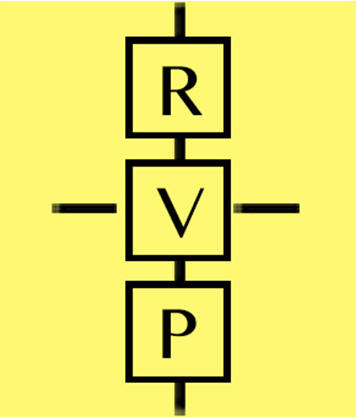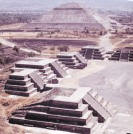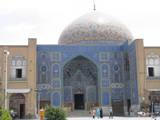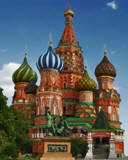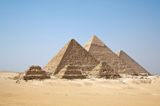|
AN INVITATION
THE ANNUAL SEMINAR
Reason in Faith: Cultural
Foundations for
Civil Society and Globalization
September
15-November 15, 2004 Washington,
D.C.
Challenge
It is something of a truism that the first millennium
was focused on God. Under the impact of Christ and
Mohammed, a truly new era opened and the thousand years
to follow were concerned largely with discovering its
implications for human life. This developed both
vertically the dignity and spiritual depth of humankind
and horizontally as Christianity and Islam spread West
across Europe and north Africa, along with the renewal
of Hinduism and the spread of Buddhism north across
China to Japan.
Correspondingly it is said that the second millennium
has been focused on, and by, human reason. In the first
half of this millennium reason was invigorated by the
rediscovery of the Aristotelian corpus by Islamic and
Christian scholars, leading to an unfolding of faith in
the great Commentaries and Summas of the high Middle
Ages.
In the second half of that millenniumthis was
radicalized at the beginning of the modern period by
Bacon's call to break the idols which bore the heritage
of human experience, Descartes' directive to put all
under doubt and Locke's idea of beginning again from a
blank tablet upon which only highly controlled clear and
distinct ideas could be inscribed. In the Enlightenment
reason tended to position itself against the faith. The
result was a highly focused, abstractive and anemic
structure of technical reason.
Recently this structure has been radically questioned.
If the cold war was its natural reductio
ad extremum, then the implosion of communism in `89
and the radical questioning of the matching free market
ideology in `98 suggest that the modern Promethean
hubris of reason is no longer sustainable. Moreover, the
post modern critique of modernity in the modern terms of
power and control threatens to demolish not only reason,
but meaning and the value of human life as well.
At this turn of the millennia it now becomes clear that
reason alone will not do and that there is need of a new
synthesis of the focus of the first millennium on the
divine and that of the second millennium on the human --
or, more precisely, of faith and reason. The question is
no longer whether there is room for faith in an age of
reason, but how faith can defend reason by helping to
lay firm foundations for human life, its spiritual
dignity and hence its range of awareness (see Fides
et Ratio). In this light reason is seen not as an
enemy of faith; instead, faith appears as the context
and defender of reason. Reason, in turn, is needed by
faith in order to articulate its humane and spiritual
vision of life in an ever more complex age.
In this it meets the new reality of globalization, taken
not economically and politically as a horizontal
subjection and control of the nations of the world, but
vertically and progressively as extending through human
subjectivity to freedom and creativity, and thence toa
flourishing and interaction of cultures and their
religious foundations. Here faith as articulated by
reason must meet and provide the potential for just and
convergent cooperation between peoples, each in its
proper pilgrimage to the Holy Mountain (Isaias).
This calls for a religious renewal of epistemology and
anthropology, of ethics and metaphysics. It is this
gateway to the new millennium which the present seminar
will explore.
Response
For this work there are significant and promising
resources. The humanities (history and literature) can
uncover the values of the various cultures. The social
sciences (psychology, sociology and economics) can
contribute understanding of the structures of the world
in which we live. Above all, it will be necessary with
these to think together philosophically in order to
understand the way in which faith inspires reason and
reason articulates faith, that human freedom is open
rather than closed, and that self-assertion consists in
reaching out to others in the solidarity and
subsidiarity in which civil society consists.
For this a seminar is projected with the following
characteristics.
- Size:
restricted to under 20 scholars, in order to facilitate
intensive interchange around a single table;
- Interdisciplinary:
in order to draw upon the contemporary capabilities of
the various humanities and sciences and to penetrate
deeply into the philosophical roots and religious
meaning of cultures;
- Inter-cultural: to
benefit from the experiences and commitments of the
various cultural communities from all parts of the
world, to discover their particular problems in our day,
and especially to envisage new and creative responses;
- Focused: a
single integrating theme, in order to encourage a
convergence of insights;
- Duration:
10 weeks, in order to allow the issues to mature, the
participants to establish a growing degree of mutual
comprehension, and new insight to emerge;
- Intensive:
analyzing in detail the papers planned in common and
written by each of the participants during the seminar;
and
- Publication:
the resulting volumes, consisting of chapters written by
the individual seminar participants, intensively
discussed in the seminar and then redrafted, will
reflect concretely the work of the seminar and share it
with those working in the various cultural communities
in facing the problems of contemporary life.
Organization
- Sponsor:
The Council for Research in Values and Philosophy (RVP),
and The Center for the Study of Culture and Values,
Catholic University of America (CUA).
- Participants
in each seminar: 10 philosophers from the various
continents, with an equal number of professors from
various disciplines in the universities and institutes
of the Washington area. The visiting scholars from other
countries will be welcome to join in seminars and
courses at CUA, where they will be designated Visiting
Research Professors. They will have the use of the
research facilities of the Library of Congress and of
the universities and institutes of the Washington area.
Thus, the period of the seminar should constitute
effectively a hard working mini-sabbatical.
- Schedule:
The seminar will meet on Tuesdays 10.00 a.m. - 12.00
noon for discussion by the visiting scholars of key
contemporary texts related to the evolution of the theme
of the seminar; and on Thursdays, 3:00-5:00 p.m. for
presentation by the participants of the drafts of their
chapters as a basis for intensive critical and
exploratory discussion by the group.
- Costs:
Successful applicants will be granted an RVP Research
Fellowship which covers all fees for the seminar itself
including simple room and board, but not travel.
- How to
apply: By a letter of application before February
28, together with a curriculum vitae and bibliography,
providing details of the importance of the seminar to
the applicants overall work and the achievement of his
or her specific goals.
|

